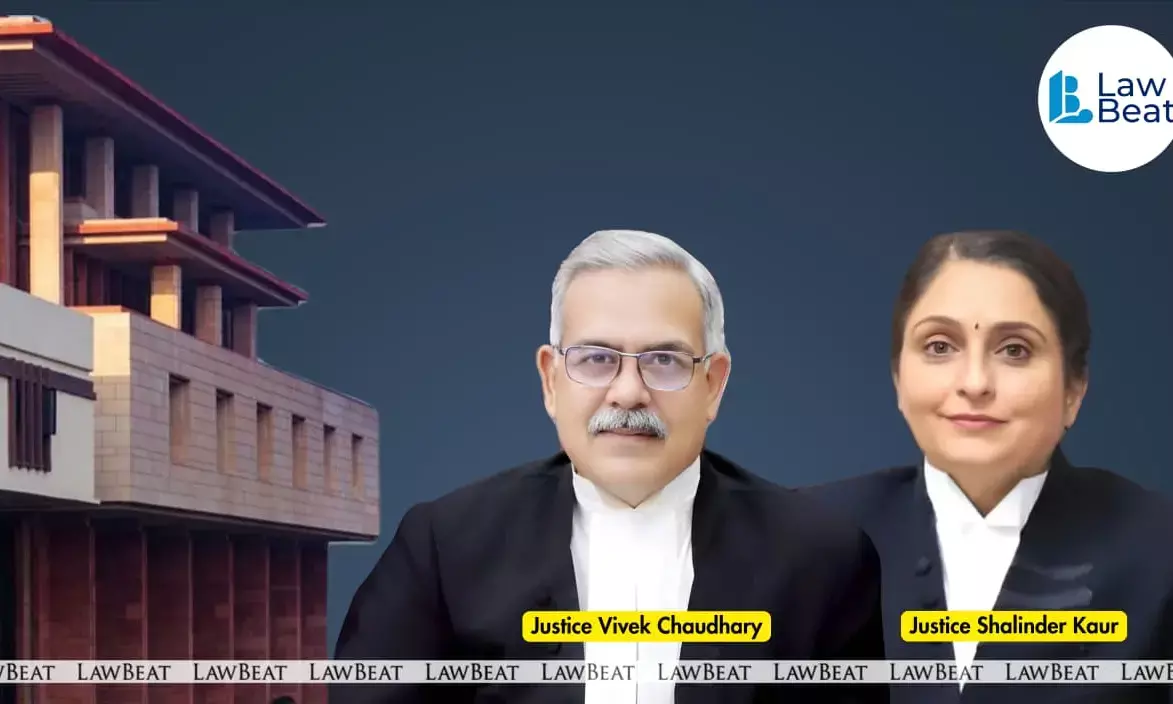Delhi HC Discharges Two Men in Contempt Case Over Abuses in Tis Hazari Court, Accepts Apology

The Delhi High Court has discharged two individuals, Devender Gupta and Hari Prakash Gupta, from criminal contempt proceedings after they tendered an unconditional apology for hurling abusive language in open court during a sentencing hearing before the Judicial Magistrate First Class (JMFC) at Tis Hazari.
The bench of Justices Vivek Chaudhary and Shalinder Kaur, while accepting the apology in view of the respondents’ age, remorse and undertakings, issued a stern caveat that any recurrence of such conduct would attract the “sternest action permissible in law.”
The proceedings originated from a reference dated April 2, 2025, made by the JMFC, West District, to the Registrar General of the Delhi High Court through the Principal District and Sessions Judge.
The reference invoked the Contempt of Courts Act, 1971, after the magistrate recorded that the two men had abused the court and the complainant in open court during a hearing on the point of sentence in State v. Davinder Kumar (Criminal Case No. 68054/2016 arising out of FIR No. 322/2013 registered at Police Station Rajouri Garden).
The order sheet of that day noted that Devender Gupta began using abusive words against the Court and remarked dismissively, “likhwata reh jo likhwana hai” as the magistrate began dictating the order.
At the same time, Hari Prakash Gupta loudly shouted “God will punish you” and proceeded to abuse both the court and the complainant using derogatory words.
Taking note of the language and conduct, the magistrate concluded that the behaviour of both men “squarely fell within the definition of criminal contempt” under the Act, and formally sought initiation of proceedings against them. The reference and accompanying record were placed before the High Court, which then proceeded to hear the matter.
During the hearing before the division bench, the complainant, Sudhir Arora, submitted that this was not an isolated lapse but part of a consistent pattern of derogatory conduct displayed by the respondents across several litigations between the parties. According to him, courts had issued warnings on earlier occasions as well. He urged the High Court not to treat the present incident lightly.
The respondents, appearing in person, however, expressed deep remorse. With folded hands, both men admitted their lapse and offered unconditional apologies. They affirmed that they had no intention of scandalising or demeaning the court, and that their behaviour had been an aberration.
In their affidavits, they reiterated that they would maintain utmost respect and decorum in all future proceedings before any court. The respondents also highlighted their personal circumstances, submitting that both were senior citizens, with Hari Prakash Gupta being 91 years of age and suffering from a 43% permanent disability in his left lower limb.
After considering the submissions, the bench decided to accept the apology, while expressly recording the seriousness of the incident. The court observed:
“In view of the submissions made by the respondents, their affidavits tendering an unconditional apology, their repeated undertakings given before this Court stating that they will maintain respect and decorum in the court in future, and keeping in view the age of the respondents, the unconditional apology tendered by the respondents is, accordingly, accepted.”
The Court, however, did not part with the matter without a firm reminder. Stressing that the dignity of courts is integral to the administration of justice, the bench said;
“Before parting, it is necessary to remind the respondents that the language used in a court of law is not a matter of choice or casualness, but one of unqualified propriety. Words that demean, insult or scandalize the court have repercussions not merely for the dignity of the institution, but for the administration of justice itself.”
The High Court further warned that though the respondents were being let off on this occasion owing to their apology and mitigating factors, any repetition of such behaviour in any court of law would invite the most severe consequences permissible under the Act, “uninfluenced by the present order.”
The contempt petition was accordingly disposed of.
Case Title: Court on its Own Motion v. Devender Gupta and Anr.
Date of Judgement: 11 August 2025
Bench: Justice Vivek Chaudhary and Justice Shalinder Kaur
